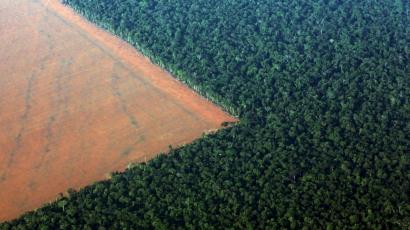Beef and the Environment

Let me begin by saying that I tend to be more impressed with peer-reviewed science than opinion pieces in mainstream media, especially the low-end schlock.
The impact of red meat on the human diet may be controversial, though it’s clear that countries whose people live longest eat very little of it. As noted here: Long-lived people are not necessarily vegetarian, but they do eat mostly plant foods. And if they do eat meat, they do so sparingly. Beans, whole grains and garden vegetables are the cornerstone of all the longevity diets. Nuts are also a common food eaten.
There is zero doubt, however, that the beef industry has a horrific impact on the environment, via pollution through fossil fuel usage, animal methane, effluent waste, and water and land consumption. This report from the Food and Agricultural Organization (FAO) within the United Nations discusses in detail the scope and nature of the stress that the mass consumption of beef places on the environment.
Moreover, we’re losing about 150 acres of the Amazon rainforest per minute, largely to grow beef. If it took you 60 seconds to read this, the planet lost an area of a championship golf course so human beings can go on eating an unlimited supply of red meat.
There are people who are indifferent to the cruelty of factory farming. I hope you’re not among them, but even if you are, there is an ample supply of good reasons to cut back on beef. As we say in pig Latin, etslay educeray the illingkay of owscay and the onsumptioncay of edray eatmay.

Craig,
Why do converts to any new fad always feel the need evangelize?
you say you base your beliefs on science, but then very unscientifically select only the element that support your beliefs structure.
That’s the problem with being selective, it becomes dishonest and yet justified in the mind of a zealous believer as a sort of “virtuous truth”.
Thus the ‘true believer’ learns a sort of pseudo-science logic, where “cutting down rain-forest for beef production’ equates to “eating Beef is bad for the environment” instead of “cutting down rain-forest (for any purpose) is bad for the environment” !
The sly juxtaposition of agendas is a trick played by all ardent advocates and evangelists to win by association what doesn’t withstand careful analysis.
I’m a “beef Farmer” on two continents. My animals create no environmental harm whatsoever.
For more than eight years, we have been researching, with increasing success, the introduction of ruminant breeds of with dramatically reduced methane emissions.
The genetic propensity for ruminants(cattle,sheep and goats in particular) to produce large amounts of methane, is neither ” natural” not healthy for the animal,
By correcting this propensity we can increase the health and comfort of the animal and mitigate emissions.
Contrary to your erroneous assertions, cattle and sheep can actually be good for the environment, providing natural fertilizer and soil enrichment. These animals allow grassland to grow as pasture, encouraging diversity, free from scrub and herbivorous mono-culture predators.
There is absolutely no evidence to say vegetarians live longer, or even healthier than humans with an omnivorous diet.
In fact, there is strong scientific evidence to the contrary.
I’m not evangelizing for adult humans to eat meat, or become vegetarian, vegan or any other belief based dietary regime. Everyone has a right to eat what makes them happy.
However, I do wish Vegan, Vegetarian evangelists would cease inventing spurious (and dishonest) sermons to interfere with my choice of diet!